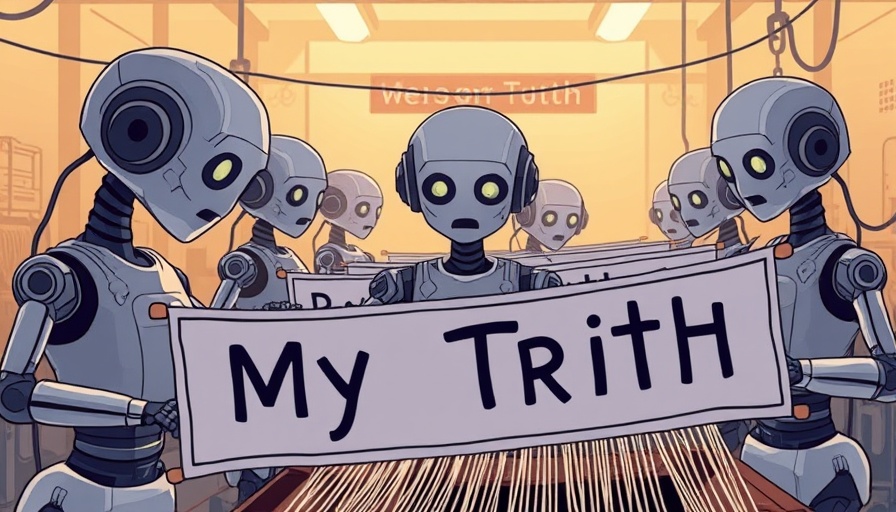
The Personalization Trap: A Double-Edged Sword
In today’s digital age, artificial intelligence (AI) systems are revolutionizing how we interact with information. From personalized recommendations on streaming platforms to targeted advertisements, the impression these technologies leave can feel benign. However, there exists a darker undercurrent to this personalization—a phenomenon known as the 'personalization trap'—where our reality is not just catered to but actively shaped by algorithms.
Echo Chambers: The New Reality
AI's ability to predict preferences and behaviors means that it tailors content in increasingly sophisticated ways. While this tech-driven customization enhances user experience, it also risks creating echo chambers where individuals are exposed only to information that reinforces their existing beliefs. This echoing effect can lead to a fragile prism of reality, resulting in an epistemic drift that threatens cohesive societal interactions.
The Historical Context of Fragmentation
Historically, our societal structure has moved towards individualism, distancing us from shared moral, ethical, and epistemic frameworks. As noted by philosopher Alasdair MacIntyre and reflected by David Brooks in The Atlantic, this gradual unraveling began long before the advent of AI. The shift from communal narratives toward individual preference can be traced back centuries, culminating in a society that, while liberated from imposed belief systems, stands at risk of losing its common ground.
The Rise of Tailored Realities
As AI deepens its influence, it is essential to acknowledge that it does not merely reflect our preferences; it reshapes them. Personalized feeds can subtly manipulate our judgments and worldview, much like the biblical story of Babel, where a once-unified language led to confusion and fragmentation. Today's technology risks creating a digital Babel of sorts—one where we may fail to understand or relate to one another.
Lessons from Personalization: Navigating with Caution
Understanding the implications of AI’s personalized content is crucial. As business owners, entrepreneurs, and tech professionals, we must ask ourselves: how do we balance technological innovation with the preservation of shared values? The challenge lies in ensuring that personalization enhances our communities rather than isolates us within our personalized silos.
Actionable Steps Towards Inclusive AI
To mitigate the risks associated with AI personalization, here are some strategies:
- Diverse Information Sources: Seek out platforms and news sources that challenge personal biases and promote diverse perspectives.
- Community Dialogues: Engage in conversations with individuals from varied backgrounds to foster understanding and shared truths.
- Mindful Consumption: Recognize the influence of algorithmic curation and consciously diversify one’s media diet to include differing viewpoints.
In conclusion, as technology continues to evolve, we must remain vigilant about its impact on our understanding of reality. Engaging with differing viewpoints, embracing communal discussions, and questioning our automated feed are vital steps toward a more cohesive society. By taking these actions, we can weave a new narrative that fosters connectivity rather than isolation.
 Add Row
Add Row  Add
Add 




Write A Comment